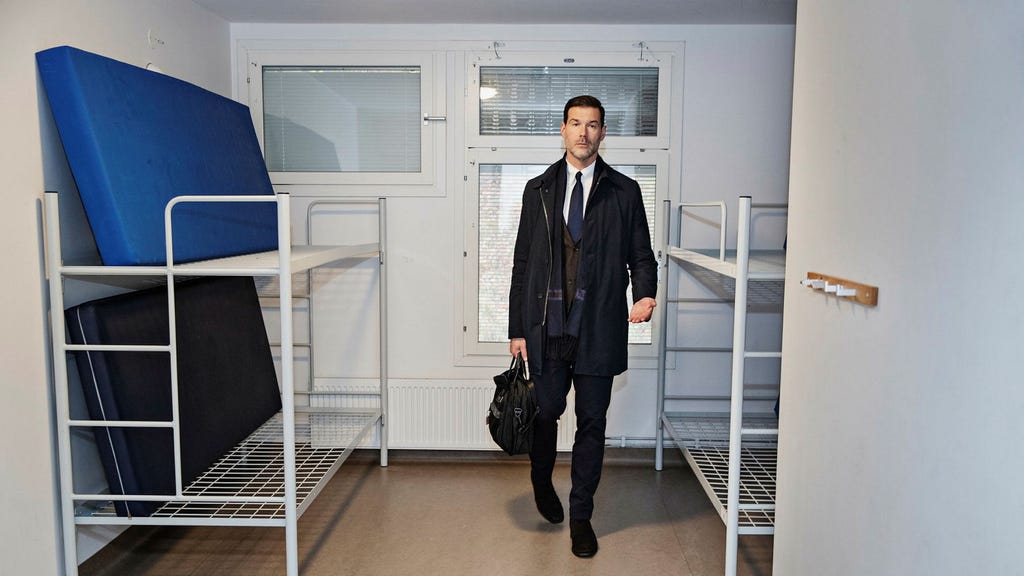The Swedish Migration Minister, Johan Forssell, recently met with his EU counterpart, Magnus Brunner, to discuss the emerging migration challenges facing European nations. A key concern shared among these countries is the increasing movement of people within the region, prompting fears of a potential repeat of the 2015 refugee crisis. Forssell emphasized the importance of proactive measures to prevent such a scenario from unfolding, highlighting the need for a coordinated European response to manage migration flows effectively. The ministers acknowledged the complex and evolving nature of the situation, recognizing the need for continuous monitoring and assessment to anticipate and address potential crises. This shared concern underscores the interconnectedness of migration issues across Europe and the necessity for collaborative solutions.
Sweden, in response to the evolving security situation in Syria, has implemented a temporary suspension of deportations and decisions on residence permits for individuals originating from that country. This pause allows the Swedish Migration Agency time to thoroughly assess the changing political and security landscape within Syria and determine the appropriate course of action regarding asylum claims and returns. This temporary halt underscores the Swedish government’s commitment to ensuring that decisions regarding asylum and deportation align with the current realities on the ground in Syria. It reflects a cautious approach aimed at preventing the involuntary return of individuals to potentially dangerous or unstable conditions.
The decision to suspend deportations to Syria is not unique to Sweden. Similar measures have been taken by Denmark and Germany, reflecting a broader European trend of cautious reassessment in light of the dynamic situation in Syria. It is anticipated that other countries may follow suit, indicating a growing consensus among European nations on the need for a careful and informed approach to the issue of Syrian repatriation. Carl Bexelius, a representative of the Swedish Migration Agency, emphasized the fragility of the situation in Syria and the complex legal questions raised by recent developments. He drew a parallel to the temporary suspension of deportations to Afghanistan following the Taliban takeover in 2021, highlighting the precedent for such precautionary measures in response to rapidly changing geopolitical circumstances.
The temporary suspension will provide the Migration Agency the necessary time to analyze the latest developments in Syria, ensuring that decisions regarding asylum and deportation are grounded in a comprehensive understanding of the situation. This careful assessment will consider the safety and well-being of individuals while also adhering to international legal obligations. The halt on decisions concerning residence permits further reflects a commitment to fairness and due process, allowing for a thorough evaluation of each individual case in light of the updated information gathered during the suspension period. This measured approach aims to strike a balance between protecting vulnerable individuals and maintaining the integrity of the asylum system.
While the long-term implications of the situation in Syria remain uncertain, Minister Forssell acknowledged the increasing desire among refugees in various countries to return home. However, he cautioned against premature predictions about the scale of potential returns, emphasizing the unpredictable nature of the situation in Syria. The volatile political and security landscape makes it difficult to gauge the future trajectory of the conflict and its impact on the willingness and ability of refugees to return. The minister’s comments reflect a realistic assessment of the complex dynamics at play and the need for ongoing monitoring to understand how the situation unfolds.
The confluence of these events – the increasing migratory pressures in Europe, the temporary suspension of deportations to Syria, and the uncertainty surrounding the future of Syrian refugees – highlights the ongoing challenges facing European governments in managing migration flows. The focus on a coordinated European response, coupled with the cautious approach to repatriation decisions, underscores the importance of balancing security concerns with humanitarian considerations. The evolving situation requires continuous assessment and adaptation, ensuring that policies remain responsive to the changing realities on the ground and uphold the rights and safety of all involved. This complex interplay of factors necessitates a nuanced and multifaceted approach to address the multifaceted challenges of migration in the 21st century.














